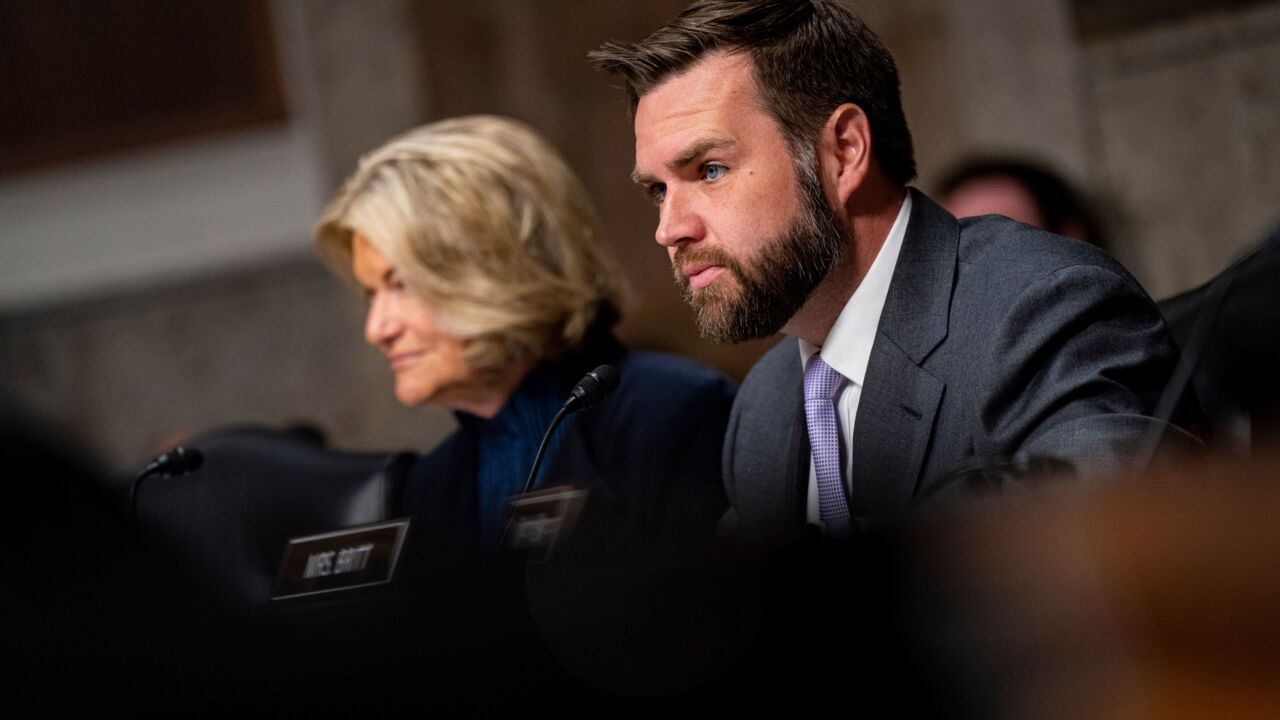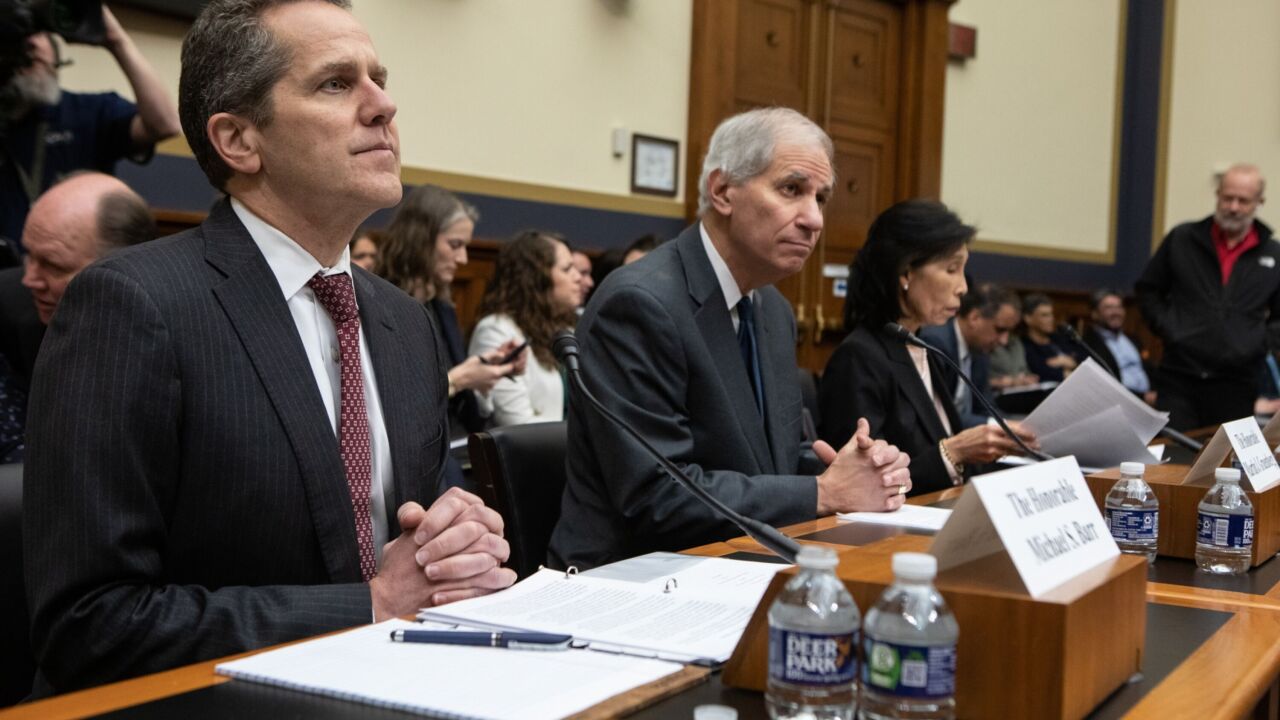-
The banking crisis set in motion by the failure of three banks has the industry focusing once more on how to avoid the same scenario.
June 1 -
The locations being shuttered are spread across eight states, according to a spokesperson. JPMorgan took over 84 First Republic branches when it bought the failed San Francisco bank a month ago.
June 1 -
The unit's CEO, Jeff Leerink, and his management team are said to be preparing to announce a deal for the firm in the coming days, pending approval from the U.S. Bankruptcy Court for the Southern District of New York.
June 1 -
Sen. J.D. Vance, R-Ohio, and other Republicans have signed on to a bill that would bolster the Federal Deposit Insurance Corp.'s ability to claw back the compensation of the executives of failed banks.
June 1 -
The Federal Reserve Board and California Department of Financial Protection and Innovation want to ensure the shuttered bank makes good on its commitment to self-liquidate and make depositors whole. It also wants full cooperation on an investigation into FTX ties.
June 1 -
In May's roundup of American Banker's favorite stories: Washington state plans to provide mortgage assistance to help address historical discrimination, an insider look at how Comerica is faring with the Treasury's Direct Express program, the fall of First Republic Bank and more.
June 1 -
The Federal Deposit Insurance Corp. said in its quarterly banking profile that the banking industry remains resilient despite a challenging economic backdrop, but exposure to commercial real estate losses and interest rate risks could make continued stability difficult.
May 31 -
A full accounting of regulators' actions in the lead-up to the collapse of Silicon Valley Bank, as well as other recent bank failures, is necessary to restore public confidence in both the banking system and the government itself.
May 31 Mercatus Center at George Mason University
Mercatus Center at George Mason University -
Banks with between $50 billion and $250 billion of assets leaned particularly heavily on the Federal Reserve and the Federal Home Loan banks amid deposit outflows in March and April, according to new research that quantifies the scramble for funding.
May 30 -
Ever since Silicon Valley and Signature banks collapsed in March, a scramble began among regulators, politicians, bank executives and others to manage the fallout from this spring's banking crisis. Here are 10 predictions of what still lies ahead to be dealt with.
May 29 -
Like it or not, Big tech is going to become a player in financial services. It would be better to write rules now than to wait for a crisis.
May 29
-
To strengthen the industry, large regional banks should be subjected to heightened supervision and the Federal Deposit Insurance Corp. should change how it assesses deposit insurance premiums.
May 29
-
After the failures of Silicon Valley Bank and Signature Bank, other institutions rushed to reassure their customers. But it can be tricky to ensure these messages do no harm.
May 29 -
The global accord's provision on supervision establishes broad authorities over risks not expressly covered in capital rules. The Federal Reserve's top regulator has already hinted that those authorities might be relied on more in the wake of this spring's bank failures.
May 26 -
After the three bank failures, PacWest customers yanked billions of dollars as the firm scrambled to stabilize capital and liquidity levels, and the stock has plunged 70% this year.
May 26 -
JPMorgan Chase notifies about 1,000 First Republic Bank employees that they aren't being given jobs — even temporarily — following its takeover of the failed lender.
May 25 -
Two former top bank regulators argue that efforts to eliminate risk from the business of banking is a fool's errand, and say it is time to refocus banks' managers and boards on the business of managing it.
May 25 Federal Deposit Insurance Corporation
Federal Deposit Insurance Corporation -
The San Francisco-based bank — which regulators seized and sold to JPMorgan Chase early this month — was paying dozens of employees more than $10 million apiece annually in the heyday before its collapse.
May 25 -
The regional bank made the deal as part of an effort to bolster liquidity following turmoil among its peers.
May 24 -
A string of bank failures has increased scrutiny of banks' underwater Treasury securities — holdings that have traditionally been viewed as risk-free. As regulators reimagine the bank capital framework, they should reconsider whether anything can or should be considered riskless.
May 23 American Banker
American Banker














